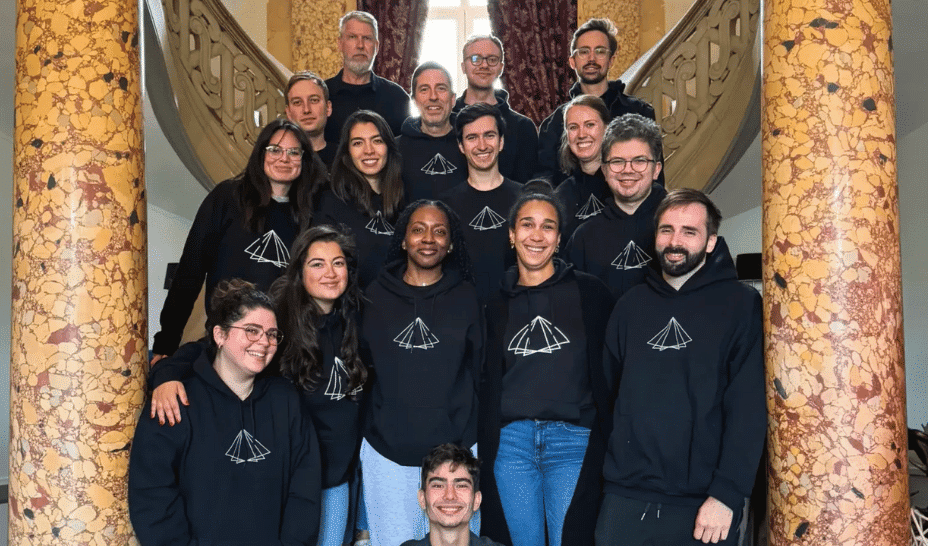Building from the ground up: Key strategies for startups to achieve entrepreneurial success
“Don’t just build a startup, build a legacy.” In the latest iStart Inspire webinar, Sauvik Banerjjee, Founder of Ziki and Sirrus.ai, shares his insights


The startup ecosystem in India has grown at breakneck speed over the last decade. As per data by the World Economic Forum, over 1,20,000 startups have been registered in India in the last 10 years, making it the third largest startup ecosystem in the world.
The advent of new-age technologies like artificial intelligence and machine learning has led to greater automation, maximising productivity and servicing millions of individuals and enterprises.
However, not all startups survive or achieve success in this competitive ecosystem. This was the focus of a recent webinar in the iStart Inspire series, where Sauvik Banerjjee, Founder MD and CEO at Ziki and Sirrus.ai, and President, Products, Tech and AI, at Rezolve AI,H shared insights on how startups can leverage enterprise-level strategies to accelerate growth.
The webinar, hosted by iStart, one of India’s largest and most inclusive startup platforms, covered product-market fit, funding strategies, the role of AI and automation in scaling businesses, and how startups can stay ahead of industry disruptions while maintaining agility and vision.
Operating across every district of Rajasthan, iStart provides comprehensive support including incubation, mentorship, and funding opportunities of up to Rs 25 lakh without traditional tendering requirements. With over 5,700 registered startups, including more than 2000 women-led ventures, iStart continues to catalyse entrepreneurial growth in the region.
Building blocks
Banerjjee, who has worked towards building multiple startups in the UK, te US and India, believes that most people want to achieve the journey of an orbit. Most don't want to be a ‘copycat business’ but seek to disrupt the market or address a gap.
However, the journey doesn't end there. “Once you've built it, you have to ensure your startup can adapt. Whatever it is, it needs to thrive with users and customers. When there's greater adoption and your idea starts to make money, you scale smartly,” he said.
Agility is key, especially at the beginning of the journey. Tactical and strategic movements must be balanced to achieve success. “When you are building a business, you have an idea of this arc. This is what most successful startups and unicorns do. This is not a startup playbook but an enterprise playbook,” Banerjjee said.
Lessons to remember
It all begins with an idea, which is nothing but a structured approach to generating, evaluating, and refining ideas focusing on goals. “One has to always assess if the idea is based on feasibility, innovation, or invention. Always write down your idea, else you will forget and move on. When the idea remains with you for a long time is when it starts to matter,” Banerjjee said.
Next comes the evaluation stage, where you analyse the gathered data and understand if there are enough examples. If not, keeping the spark alive and bouncing it to certain people will generate better versions of that idea.
“I have always benefited from a design thinking framework. These were not available in my 20s when I was building businesses in the UK. It has gotten commoditised today, so you have that tool. It allows you to empathise, define, ideate, prototype, and test,” he said.
Conducting market research is equally critical to understand the consumer better. At the end of the day, the business is about getting people to buy products or services.
“You can target the audience with your organisational product or a service. You can do it in person or play around with digital surveys,” Banerjjee said. “You need to continuously analyse the data you are getting and bake it back into your business. If you are starting up by yourself or with a group of people, it's a continuous process.”
Funding strategies
While finding the correct product market fit is non-negotiable, strategies around funding must not be neglected. It's a wise idea to take money from external sources like friends and family, especially in the initial stages. At this juncture, bringing in a VC or angel investor won't make sense.
He said one can’t ignore using AI to either build a product or use it for efficiency. “AI has to be central to the DNA, which becomes parts of your business because it just saves a lot of time. Sometimes, it allows you to build better features,” Banerjjee said.
That's not all. It is essential to build conviction and stay confident in front of the investor. The idea is to ensure that the business is maximising enough revenue, towards a path of profitability.
“After you start generating revenue, you may want to expand. That's when angel investment works. Try going for an angel in your area of work. If you go for multiple angels, leverage the network capital,” Banerjjee advised.
In his opinion, the backing of a large conglomerate is a good idea. While the stakes are high and every decision measured, the outcome is impactful.
“Go with those people who will see you through profitability and are patient enough to see you through your journey,” Banerjjee concluded.

































































































































































![[The AI Show Episode 145]: OpenAI Releases o3 and o4-mini, AI Is Causing “Quiet Layoffs,” Executive Order on Youth AI Education & GPT-4o’s Controversial Update](https://www.marketingaiinstitute.com/hubfs/ep%20145%20cover.png)


![[The AI Show Episode 143]: ChatGPT Revenue Surge, New AGI Timelines, Amazon’s AI Agent, Claude for Education, Model Context Protocol & LLMs Pass the Turing Test](https://www.marketingaiinstitute.com/hubfs/ep%20143%20cover.png)
















































































































































































































































.png?width=1920&height=1920&fit=bounds&quality=70&format=jpg&auto=webp#)
.png?width=1920&height=1920&fit=bounds&quality=70&format=jpg&auto=webp#)











































































































































![AirPods Pro 2 With USB-C Back On Sale for Just $169! [Deal]](https://www.iclarified.com/images/news/96315/96315/96315-640.jpg)
![Apple Releases iOS 18.5 Beta 4 and iPadOS 18.5 Beta 4 [Download]](https://www.iclarified.com/images/news/97145/97145/97145-640.jpg)
![Apple Seeds watchOS 11.5 Beta 4 to Developers [Download]](https://www.iclarified.com/images/news/97147/97147/97147-640.jpg)































































































